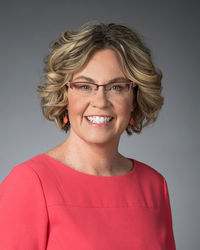From the director

This is a season of loss—loss of life as the death toll from COVID-19 climbs, but also replete with other losses, of income, of treasured spring rituals, of routine, of expected outcomes, and of physical proximity to those we care about and love. As of this writing, we are assessing the impact of the pandemic on the Cushwa Center’s budget and programming, which, in accordance with directives from Notre Dame’s central administration, will be scaled back for the foreseeable future.
Throughout my quarantine I have found unexpected solace in re-reading favorite pandemic novels. The plots of Emily St. John’s Station Eleven and Peter Heller’s The Dog Stars depend on the emergence of far more deadly viruses and the subsequent collapse of civilization. Herein lies the comfort. This “COVID-19 winter” will irrevocably alter our world, but not so much so that it will be unrecognizable. Spring will return eventually, and with it the resumption of in-person meetings of family, friends, and colleagues.
Meanwhile, if an imagined dystopian future offers one source of solace, a recorded past provides another. On our first day meeting online, my students and I discussed a primary source published in the March 1919 edition of the Records of the American Catholic Historical Society of Philadelphia. Villanova professor Francis E. Tourscher, O.S.A., compiled stories gathered from local Catholic sisters who, in response to Archbishop Dennis Dougherty’s plea for Red Cross reinforcements, provided nursing care in homes and hospitals during the deadliest month of Philadelphia’s 1918 influenza pandemic. Parts of the article—the deathbed conversions and conditional baptisms, the references to ‘Chinamen’ and ‘the Biddle Home for Imbecile Children”—reflect the ecclesiology and sensibilities of a bygone era. Yet much of it resonates in our contemporary moment of disruption and fear. Leaving their normal lives behind, thousands of religious women battled an enemy they could not see for the benefit of people they did not know. Grade school teachers scrambled to transform their classrooms into makeshift wards; sisters who had not left convent grounds in decades asked strangers for directions as they rode streetcars to emergency hospitals.
This bulletin from the past provided one student with the spiritual nourishment she had been longing for, and accomplished what her prayers had thus far failed to do: Absorbing “the energy of the sisters,” she wrote, helped “release the toxins of my anger and sadness.” Many of us seized upon the sisters’ reflections after the immediate crisis passed. One, grateful that “God ha[d] supplied what was lacking from total inexperience,” believed that “the memories of October 1918 hold some of the most consoling thoughts of my life.” Another shared that it was through this experience that she “learned to appreciate my vocation to religious life more than ever before.”
This once-in-a-century crisis compels us to turn our attention to questions often lost amidst the business of what constituted normal life: questions of who we are called to be, what it means to be a human being, how we are linked to others in our local communities and around the globe. Be well.
Kathleen Sprows Cummings
Kathleen Sprows Cummings serves as the William W. and Anna Jean Cushwa Director of the Cushwa Center for the Study of American Catholicism at the University of Notre Dame, where she is the Rev. John A. O'Brien Collegiate Professor of American studies and history.
This director's note appears in the spring 2020 issue of the American Catholic Studies Newsletter.